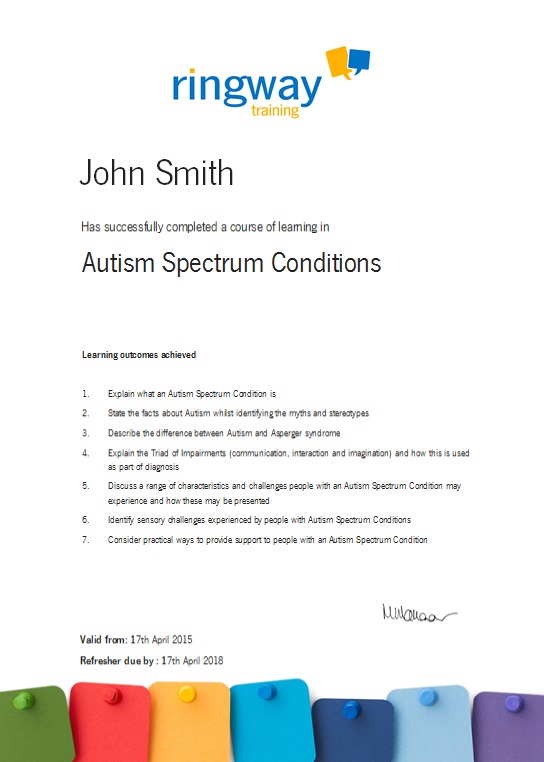Course Summary
Contextual safeguarding is specific approach focusing on situations outside of a family environment which may increase the risk of harm or abuse for children, young people and in particular adolescent young people, considers the influences which they could be exposed to and how these might constitute safeguarding concerns.
This training course describes the meaning of safeguarding, abuse, contextual safeguarding and extra-familial harm, describes the six core principles of safeguarding and lists legislation which is relevant to safeguarding children.
This training course defines situations outside of an immediate family environment that may increase risk for children and young people and lists activities which can constitute a contextual safeguarding risk and extra-familial harm.
This training course describes influences that children and young people are exposed to in adolescence which could constitute a safeguarding concern and evaluates how extra-familial relationships can be just as harmful as those a child or young person has with their family and to consider these as part of assessing risk.
This training course considers barriers to implementing preventative or protective measures when a risk comes from a factor in their wider environment and explain the four key dynamics that should be considered when understanding where threats or risks may come from (home and family, peer groups, school/education and neighbourhood).
This training course explain the four key features of an appropriate response to prevent contextual safeguarding concerns, states how to raise concerns about the safety or wellbeing of a child or young person and defines the meaning and purpose of Child Protection Online Protection (CEOP) and the National Referral Mechanism (NRM).
Finally, this training course defines the principle of a 'two-tier approach' to Contextual Safeguarding, explains the importance of involving children, young people and in particular adolescence in decision making around risk and concern and describes approaches to take with children and young people to promote awareness and reduce risk. This is an accredited course.
Course Learning Outcomes
Review the learning objectives below. Expand each aim to view the detailed criteria this course covers.
- 1.1Describe what safeguarding is
- 1.2Describe what abuse is
- 1.3Describe the six core principles of safeguarding
- 1.4List legislation which is relevant to safeguarding children
- 2.1Describe the meaning of contextual safeguarding
- 2.2Describe the meaning of extra-familial harm
- 2.3Define situations outside of an immediate family environment that may increase risk for children and young people
- 2.4List activities which can constitute a contextual safeguarding risk and extra-familial harm
- 2.5Describe influences that children and young people are exposed to in adolescence which could constitute a safeguarding concern
- 2.6Evaluate how extra-familial relationships can be just as harmful as those a child or young person has with their family and to consider these as part of assessing risk
- 3.1Consider barriers to implementing preventative or protective measures when a risk comes from a factor in their wider environment
- 3.2Explain the four key dynamics that should be considered when understanding where threats or risks may come from; (home and family, peer groups, school/education and neighbourhood)
- 3.3Explain the four key features of an appropriate response to prevent contextual safeguarding concerns
- 3.4State how to raise concerns about the safety or wellbeing of a child or young person
- 3.5Define the meaning and purpose of Child Protection Online Protection (CEOP) referrals
- 3.6Define the meaning and purpose of the National Referral Mechanism (NRM)
- 4.1Define the principle of a 'two-tier approach' to contextual safeguarding
- 4.2Explain the importance of involving children, young people and in particular adolescence in decision making around risk and concern
- 4.3Describe approaches to take with children and young people to promote awareness and reduce risk
Who is this course for?
This Contextual Safeguarding and Extra-Familial Harm training course is designed for professionals working with children and young people including support teams, education professionals and foster carers.
Duration
1 day course - we can be flexible on start and finish times to suit your needs such as school run friendly times.
Availability
This [Name] is offered in two delivery formats:
- Remote Online: Led by a live tutor via Zoom or Microsoft Teams, allowing participants to join remotely. (Also known as virtual classroom training)
- Face-to-Face: Delivered in person at your location or a venue you arrange. (Also referred to as on-site training)
View a comparison of Remote and in-person face to face training .
Complete our quick enquiry form for a price and available dates.
Certification
Each learner completing this course will receive a digital (PDF) certificate of learning.
Accreditation
The course contents are accredited by the Open College Network (OCN) Credit4Learning as a Level 3 course.
Choose the learning environment that works best for you: our expert-led training is offered in two convenient formats - remote tutor led online or in person face to face.
Flexible start and finish times to suit you. Contact us for available dates.
The course contents are accredited by the Open College Network (OCN) Credit4Learning as a Level 3 course.
Get a Price or more information...
Just fill in this quick form and we will email you an all inclusive price, don't worry we will never add you to any marketing lists - promise. If you want more information first thats great - just get in touch
Clear pricing
We ask for location (for face to face training) and approximate numbers because we include any expenses in the quotes we give so you get one clear price - no surprise added extras
More Information?
If you have any questions, want more information or interested in a series of courses please contact us
Contact Us
